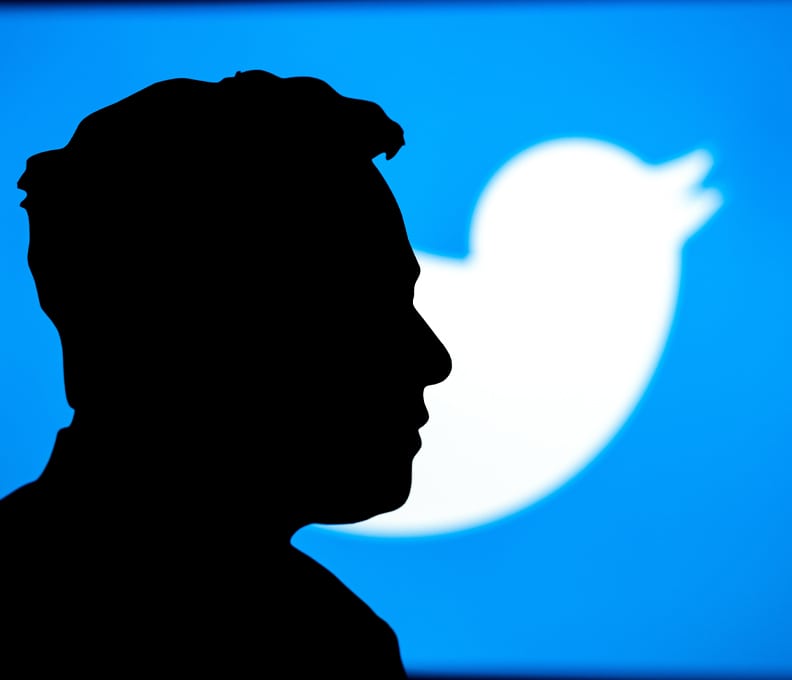Elon Musk Suspends Flight Trackers on Twitter, Including ElonJet
The Twitter owner suspended accounts that track certain private jets in real-time, citing security concerns
by Lauren Smith
December 19, 2022

Elon Musk, Twitter / Photo: kovop58/Shutterstock
Tesla billionaire and the new owner of Twitter, Elon Musk, has suspended several accounts on the social media site tracking the private jets of moguls and celebrities, citing security concerns but fueling further controversy about his ownership of the platform.
On Wednesday, Musk suspended @ElonJet, an account tracking the journeys made by his private plane, drawing on publicly available data. Several hours later, he wielded the ban hammer against Jack Sweeney (@jxcksweeney), a university student and the account’s creator.
As a justification, the billionaire tweeted, “Any account doxxing real-time location info of anyone will be suspended, as it is a physical safety violation. This includes posting links to sites with real-time location info. Posting locations someone traveled to on a slightly delayed basis isn’t a safety problem, so is ok.”
He added that a “crazy stalker” had followed a car carrying his son X in Los Angeles and “later blocked [the] car from moving & climbed onto [the] hood.”
“Legal action is being taken against Sweeney & organizations who supported harm to my family,” Musk wrote.
Elon Musk previously tangled with Sweeney, offering him $5,000 to delete the account. Sweeney countered that he wanted $50,000, support through college, and a Tesla Model 3, and the account remained up. But since Musk took possession of Twitter in October, he’s pursued a chaotic policy of suspending—and often un-suspending—accounts, allegedly to silence his critics, all while promising to restore free speech to a site he believed was marred by censorship.
In early November, Musk pointed to his tolerance of Sweeney’s accounts as proof of his “commitment to speech… even though [the account] is a direct personal safety risk.”
He subsequently changed his mind. Although @ElonJet was briefly reinstated last week, it was taken down again and remains suspended.
Other users were also blocked from tweeting links to Sweeney’s jet tracker on other platforms, with Twitter indicating that the link was “potentially harmful.”
Several hours later, Twitter took down several other accounts monitoring the movements of private jets: @GatesJet, following Microsoft founder Bill Gates; @Zuccjet, following Facebook boss Mark Zuckerberg; @bezosjets, tracking Amazon head Jeff Bezos; and @CelebJets, following a range of wealthy celebrities. Sweeney operated many of these accounts and told New York Times tech reporter Ryan Mac that 30 of his accounts had been banned.
Twitter subsequently updated its private information policy to ban “live location information, including information shared on Twitter directly or links to 3rd-party URL(s) of travel routes, actual physical location, or other identifying information that would reveal a person’s location, regardless if this information is publicly available.”
The National Business Aviation Association (NBAA) has also argued that flight tracking is a safety risk. A spokesperson for the trade group told Forbes earlier this year, “The real-time tracking and online broadcasting of business aviation flights—by anyone, anywhere in the world, with any motive—raises many serious concerns, including with regard to passenger security, safety, and corporate espionage.”
However, that’s not a universally-held position. Defenders of Sweeney point out that he’s drawing on publicly available data that all aircraft are required by the Federal Aviation Authority (FAA) to transmit about their identity, location, and speed. That data is unencrypted and freely available, so it’s seen not only by air traffic controllers and other pilots but also by anyone worldwide. In addition, numerous websites allow users to track air traffic globally.
The FAA acknowledges that non-commercial flights may have privacy concerns and allows them to apply for anonymized identification codes through the Privacy ICAO Aircraft Address (PIA) program. However, the codes can’t be changed more frequently than every 60 days. And a private jet’s past behavior can allow close observers to identify anonymized aircraft. Musk participates in the PIA program, but Sweeney has said he uses context clues to keep track of the billionaire’s plane.
The furor deepened on Thursday when Musk banned several tech journalists, including Mac, the Washington Post’s Drew Harwell, and CNN’s Donie O’Sullivan, for breaching the new rule about exposing real-time locations, allegedly for writing about @ElonJet.
The suspensions drew a swift rebuke from governments. European Commissioner Vera Jourova said that the “arbitrary suspension of journalists on Twitter is worrying” and that Musk risked crossing “red lines” in EU law protecting media freedom and could be sanctioned.
After taking a Twitter poll that showed widespread support for reinstating the journalists’ accounts, Musk did so.
The controversy about flight tracking is just the latest uproar Musk has stoked since taking possession of Twitter less than two months ago. His turbulent ownership has also seen mass layoffs, an exodus of advertisers, new rules and sudden reversals, and broken and confusing features.




